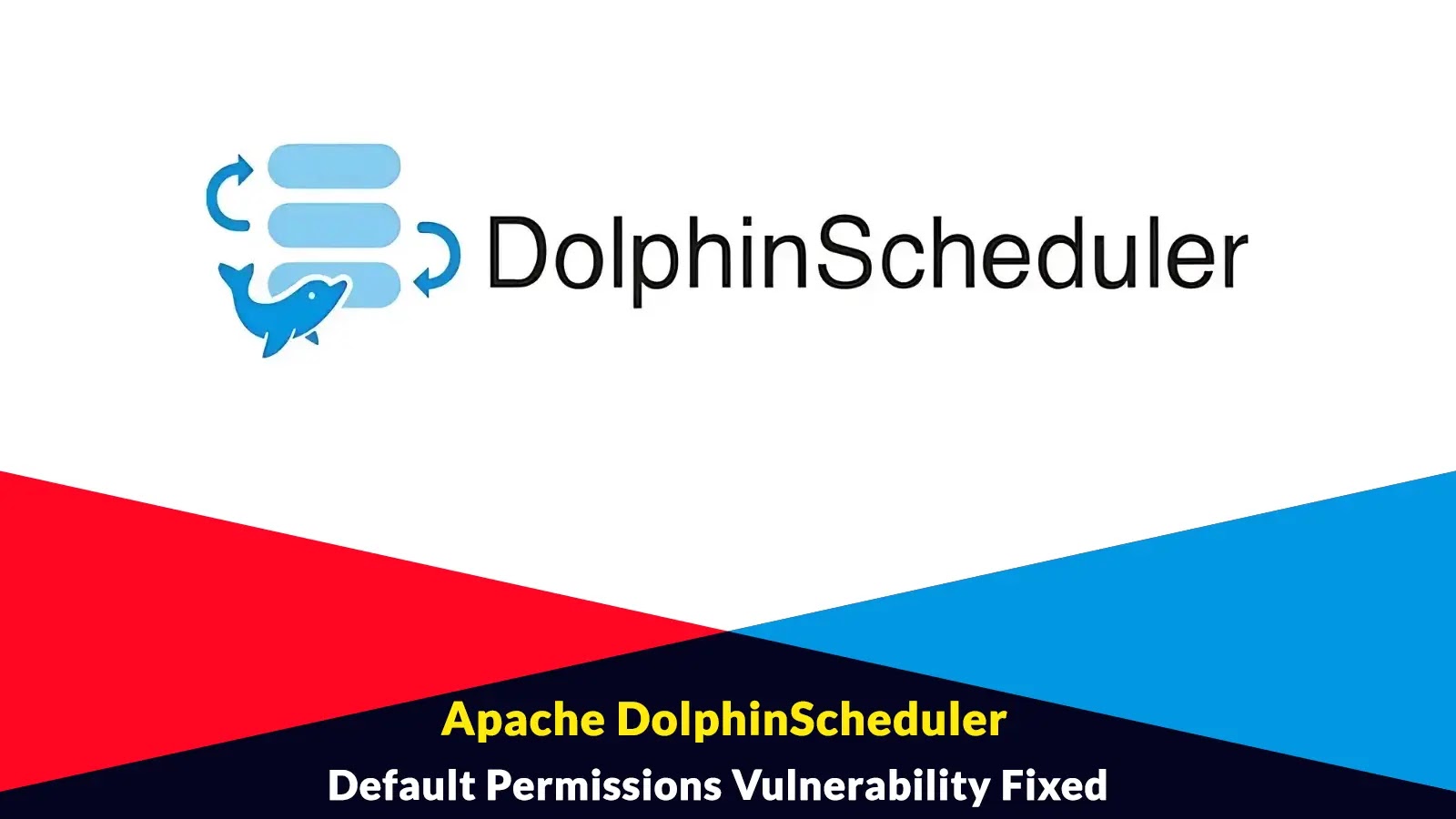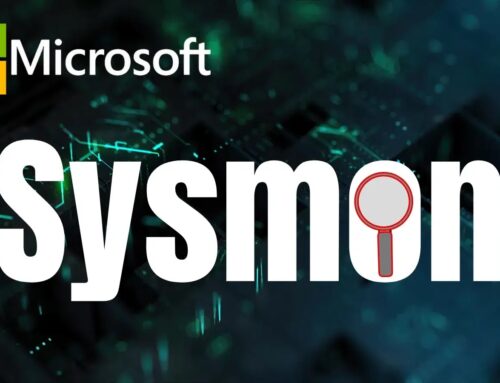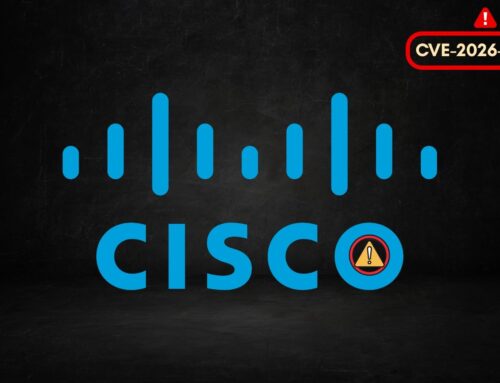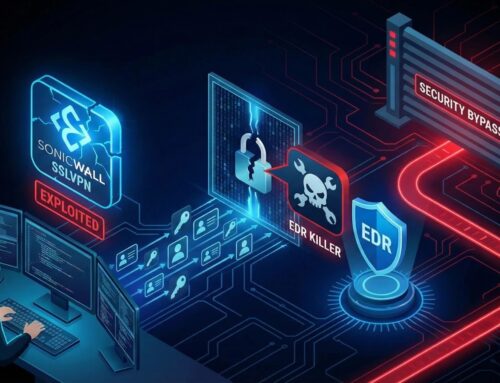
Apache DolphinScheduler Default Permissions Vulnerability Fixed – Update Now
In the dynamic landscape of enterprise workflow management, Apache DolphinScheduler stands out as a powerful, distributed, and visual workflow scheduling platform. However, even the most robust systems are not immune to security vulnerabilities. A critical flaw has recently been identified and patched within Apache DolphinScheduler’s default permission system, necessitating immediate attention from all users. This vulnerability, stemming from excessively permissive default configurations, could have severe implications, including unauthorized execution of arbitrary workflows and access to sensitive system resources without proper authentication. This breakdown explores the details of this security lapse, its potential impact, and the crucial steps you need to take to secure your deployments.
Understanding the Apache DolphinScheduler Default Permissions Vulnerability
The core of this vulnerability lies in Apache DolphinScheduler’s default security posture. Out of the box, certain configurations were set with overly broad permissions, making systems susceptible to unauthorized access and manipulation. This is a classic case of a “secure by default” principle being overlooked, where initial setups prioritized ease of use over stringent security. Specifically, this flaw could allow an unauthenticated attacker to interact with the DolphinScheduler instance in ways that should be restricted, such as:
- Unauthorized Workflow Execution: Attackers could trigger and execute workflows that were not intended for public access, potentially leading to data manipulation, resource exhaustion, or even system compromise.
- Sensitive Resource Access: The vulnerability could expose sensitive configurations, user data, or system-level information that an attacker could leverage for further exploitation or reconnaissance.
This type of flaw is particularly dangerous because it bypasses traditional authentication mechanisms, allowing direct actions on the scheduler. While specific CVE details were not provided in the source material, vulnerabilities related to overly permissive defaults often receive designations like CVE-XXXX-XXXXX (placeholder for future CVE assignment) and are diligently tracked by the cybersecurity community.
Impact of the Vulnerability
The potential impact of this critical security vulnerability is substantial for organizations relying on Apache DolphinScheduler:
- Data Compromise: Unauthorized access to system resources could lead to the exposure or modification of sensitive data processed by workflows.
- System Disruption: Maliciously executed workflows could disrupt critical business operations, halt production processes, or cause service outages.
- Remote Code Execution (RCE) Possibility: Depending on available workflow actions and system integrations, this vulnerability could be a stepping stone for an attacker to achieve remote code execution, granting full control over the compromised system.
- Reputational Damage: A security breach stemming from this vulnerability could severely damage an organization’s reputation and erode customer trust.
- Compliance Violations: Data breaches or system compromises can lead to severe penalties due to non-compliance with data protection regulations such as GDPR, HIPAA, or CCPA.
Remediation Actions: Update Now!
The most crucial and immediate action for all Apache DolphinScheduler users is to update their installations to a patched version immediately. The Apache Software Foundation has proactively released fixes to address this vulnerability, and deploying these updates is paramount to safeguarding your systems. Failure to update leaves your Apache DolphinScheduler instances exposed to potential attacks.
Here are the essential remediation steps:
- Identify Your Current Version: Determine the exact version of Apache DolphinScheduler you are currently running.
- Consult Official Release Notes: Refer to the official Apache DolphinScheduler documentation and release notes to identify the patched versions. Typically, the Apache Software Foundation will clearly outline which versions contain the fix.
- Plan Your Upgrade: Schedule a maintenance window to perform the upgrade. While this is a critical security update, proper planning minimizes operational disruption.
- Backup Your Data: Before any major upgrade, always back up your configurations, workflows, and crucial data. This ensures a recovery point in case of unforeseen issues.
- Upgrade to the Latest Stable Version: Upgrade to the latest stable release that includes the security patch. Do not simply update to the minimum patched version; always aim for the most recent secure release.
- Review Configuration: After the upgrade, conduct a thorough review of your DolphinScheduler configurations to ensure that all default permissions are now set to a secure, least-privilege standard. Any custom configurations should also be reviewed for overly permissive settings.
- Monitor Logs: Implement robust logging and monitoring for your DolphinScheduler instances. Pay attention to unusual access patterns, workflow executions, or system resource usage that might indicate compromise attempts.
Tools for Security Posture Management
While the immediate fix is an update, maintaining a strong security posture requires ongoing vigilance and the right tools. Here are some categories of tools that can assist in identifying, managing, and mitigating such vulnerabilities:
| Tool Category | Purpose | Examples/Approach |
|---|---|---|
| Software Composition Analysis (SCA) | Identifies open-source components with known vulnerabilities in your applications, including dependencies like Apache DolphinScheduler. | Snyk, Black Duck, OWASP Dependency-Check |
| Vulnerability Scanners (Web App/Network) | Scans your network and web applications for known vulnerabilities, misconfigurations, and security weaknesses. | Tenable Nessus, Qualys, OpenVAS, Burp Suite (for web app testing) |
| Configuration Management Tools | Ensures consistent and secure configurations across your infrastructure, preventing drift that could reintroduce vulnerabilities. | Ansible, Puppet, Chef |
| Security Information and Event Management (SIEM) | Aggregates and analyzes security logs from various sources to detect suspicious activity and potential breaches. | Splunk, Arcsight, ELK Stack (Elasticsearch, Logstash, Kibana) |
Conclusion
The Apache DolphinScheduler default permissions vulnerability serves as a stark reminder that robust security practices are paramount, even for well-established and widely used open-source platforms. While the Apache Software Foundation has acted swiftly to provide a fix, the responsibility now falls on all users to implement the necessary updates without delay. Prioritizing these security updates and adopting a continuous security posture, including regular vulnerability assessments and configuration hardening, is not merely a recommendation; it is an imperative. Staying informed and acting decisively are your strongest defenses against an ever-evolving threat landscape.





